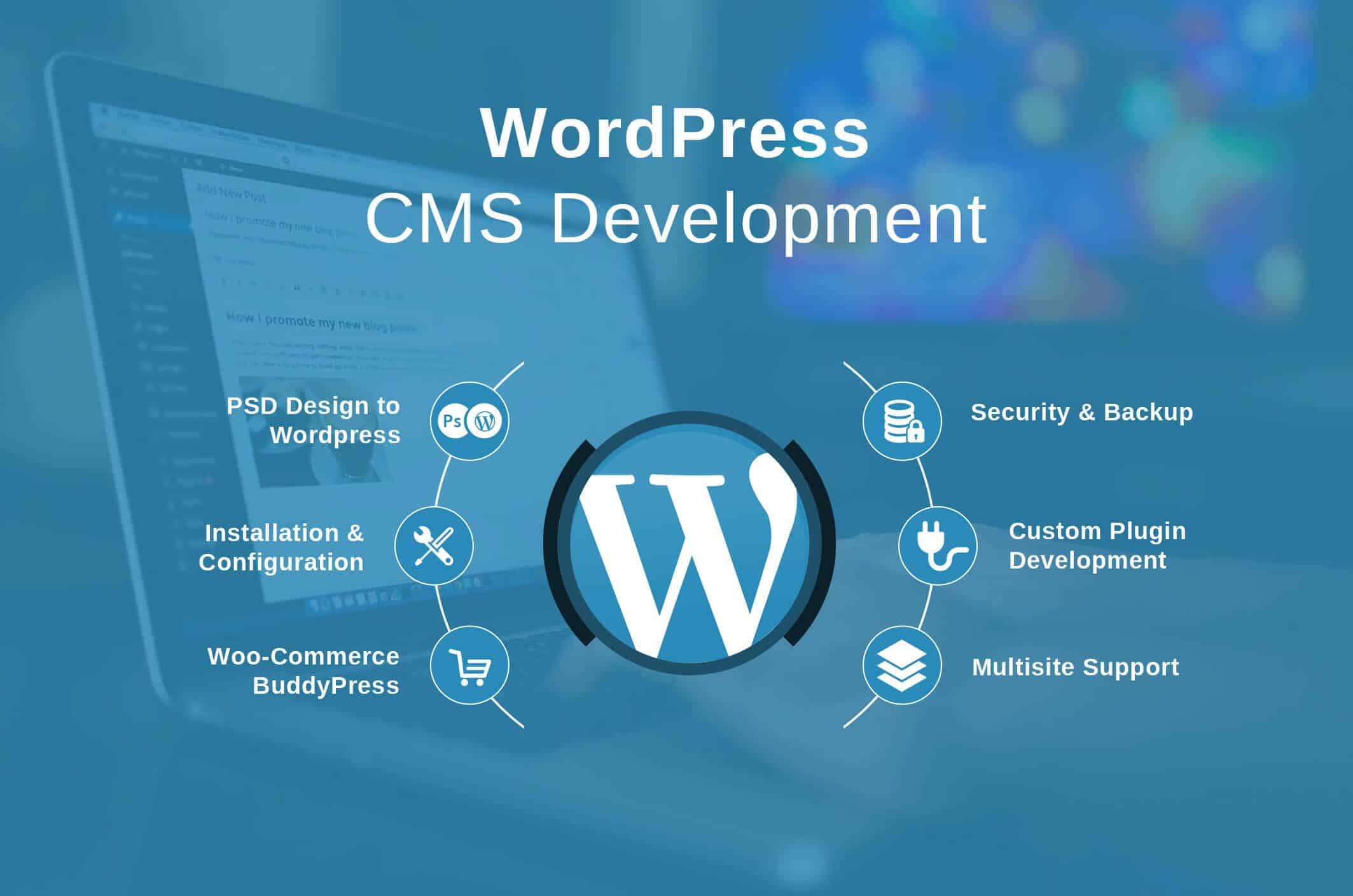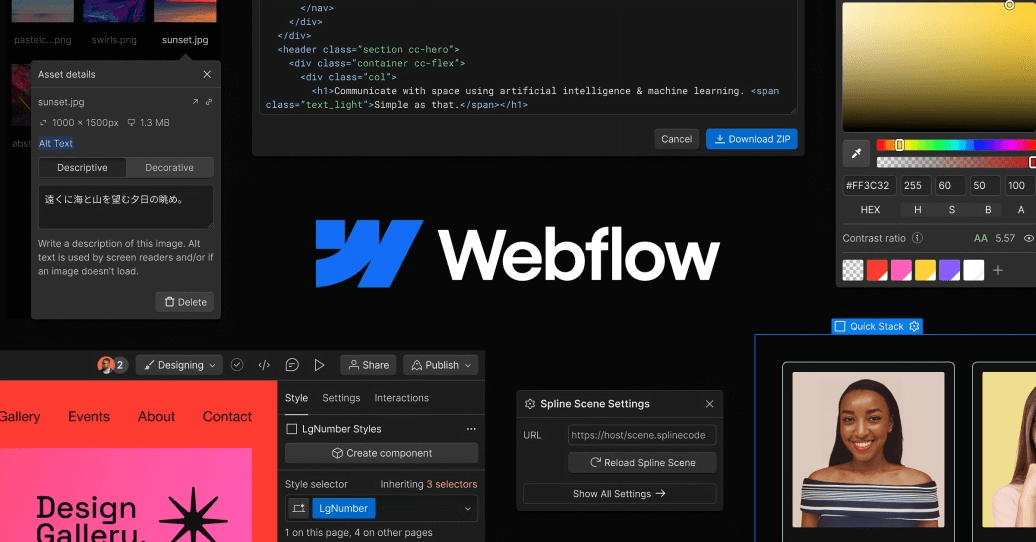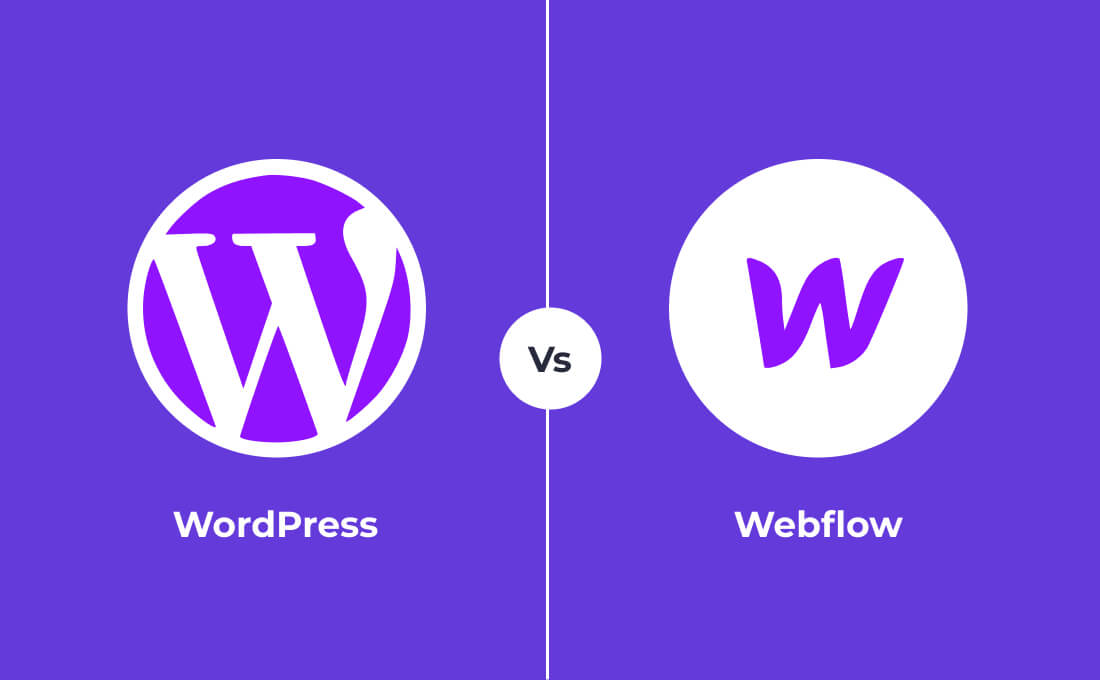In the vast world of website development and content management, choosing the right platform to build and manage your online presence becomes increasingly crucial. Among the numerous options available, two giants stand out: WordPress and Webflow. Both platforms offer unique features and cater to different needs, making the decision-making process all the more intriguing. In this blog, we'll explore the unique strengths of WordPress and Webflow, helping you make an informed decision for your web development needs.
WordPress: Empowering Content Management

1. User-Friendly Interface
WordPress has been a dominant force in the web development world for years, largely due to its straightforward and intuitive user interface. With a simple learning curve, even beginners can quickly grasp the basics of managing content, publishing articles, and customizing themes.
2. Massive Plugin Library
One of the biggest advantages of WordPress is its extensive plugin ecosystem. With over 58,000 plugins available in the official repository, users can easily extend their site's functionality without the need for extensive coding knowledge. From SEO optimization to e-commerce integration, there's a plugin for nearly every requirement.
3. Themes and Customization
WordPress boasts a vast collection of themes, both free and premium, that allow users to create stunning websites without starting from scratch. Additionally, WordPress allows for deep customization through child themes and custom CSS, catering to advanced users and developers seeking complete control over their website's appearance.
4. Established Community and Support
WordPress has a large and active community of developers, designers, and enthusiasts, making it easy to find answers to your questions, access helpful tutorials, and receive support when needed. This extensive support network ensures that your WordPress website remains secure and up-to-date.
Webflow: Revolutionary Web Design Platform

1. Visual Design and Responsiveness
Webflow is a game-changer in terms of design control. Its intuitive visual editor allows users to build websites visually, making it an excellent choice for designers who want precise control over every aspect of their site's appearance. Additionally, Webflow excels in responsiveness, allowing you to create mobile-friendly websites without writing any code.
2. No-Code and Low-Code
Webflow enables users to create complex websites and interactions without delving into the intricacies of coding. This empowers designers with little coding knowledge to build advanced websites that would have otherwise required the expertise of a developer.
3. Interactivity and Animations
Webflow's built-in tools make it a breeze to add interactive elements and animations to your website. These dynamic features help captivate visitors and improve user engagement, resulting in a more enjoyable browsing experience.
4. All-in-One Platform
Unlike WordPress, which often requires additional services for hosting and deploying, Webflow is an all-in-one solution. It provides hosting, content management, and design tools under one platform, streamlining the development and management process.
5. Designer-Friendly Ecosystem
Webflow has earned a reputation for being a platform that prioritizes designers. It offers unparalleled design control, empowering designers to bring their creative visions to life without the usual development limitations.
Conclusion
In the eternal battle of WordPress vs. Webflow, there is no clear winner. Instead, the decision comes down to your specific needs and preferences.
Choose WordPress if you value an extensive library of themes and plugins, robust community support, and the ability to host your website independently. It's an excellent choice for bloggers, content creators, and businesses with unique requirements.
On the other hand, opt for Webflow if you prefer an intuitive visual web design platform, a comprehensive all-in-one solution, and an unparalleled level of design control. Webflow is a fantastic option for designers, creative agencies, and businesses seeking a professional and visually stunning online presence.
Ultimately, both platforms have their merits, and you can't go wrong with either. Consider your project's scope, goals, and your own level of expertise to make the right choice. Whether you choose WordPress or Webflow, the key to success lies in leveraging the platform's unique advantages to create a captivating and effective website. Happy building!

